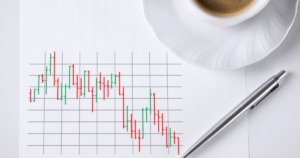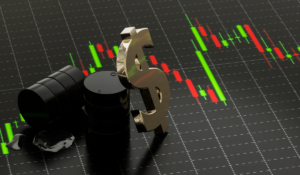Introduction
In the fast-paced world of forex trading, staying informed about market trends and potential trading opportunities is vital. Forex signals serve as valuable tools for technical traders, providing them with insights into market movements and helping them make informed trading decisions. In this comprehensive guide, we will delve into the importance of forex signals for technical traders, explore how they work, discuss how to find the best signals, and offer key insights to help you navigate the forex market more effectively.
1. Understanding Forex Signals
Forex signals are essential indicators used by traders to identify potential trading opportunities in the foreign exchange market. These signals can be generated through various methods, such as technical analysis, fundamental analysis, or a combination of both. They provide traders with valuable information about entry and exit points, stop-loss levels, and take-profit targets.
Forex signals can be classified into two main types: short-term signals and longer-term signals. Short-term signals are typically traded within a timeframe of minutes to a few hours, offering quick profit opportunities. On the other hand, longer-term signals are held for days, weeks, or even months, allowing traders to capture larger market movements.
2. The Role of Technical and Fundamental Analysis
Effective forex trading often involves a combination of technical and fundamental analysis. Technical analysis focuses on studying historical price patterns, indicators, and chart patterns to predict future price movements. Fundamental analysis, on the other hand, involves evaluating economic indicators, geopolitical events, and market news to assess the overall health of a currency and its potential impact on its value.
When it comes to forex signals, technical analysis plays a crucial role. Traders use various technical indicators, such as moving averages, oscillators, and trend lines, to identify patterns and trends in price data. These indicators help traders determine entry and exit points and assess the potential profitability of a trade. Fundamental analysis complements technical analysis by providing a broader context for understanding market movements and validating trading signals.
3. How Forex Signals Work
Forex signals are generated by experienced traders or specialized signal providers who possess in-depth market knowledge and expertise. These signals can be delivered through various channels, including email, SMS, mobile apps, or directly within trading platforms. Traders receive real-time alerts containing relevant information about specific currency pairs, such as the recommended entry price, stop-loss level, and take-profit target.
Upon receiving a forex signal, traders can evaluate the information provided and decide whether to execute the trade. It’s important to note that forex signals serve as valuable insights, but traders should conduct their own analysis and consider their risk tolerance before entering a trade. Forex signals can enhance traders’ decision-making process by providing timely and actionable information.
4. Finding the Best Forex Signals
Finding reliable and accurate forex signals is crucial for successful trading. Here are some key factors to consider when searching for the best forex signals:
a. Track Record of Performance: Look for signal providers with a proven track record of delivering consistent and profitable signals over time. Consider their historical performance and success rate in generating accurate signals.
b. Technical and Fundamental Analysis: Opt for signal providers who combine both technical and fundamental analysis in their signal generation process. A comprehensive approach increases the chances of accurate and reliable signals.
c. Educational and Learning Support: Choose signal providers that offer educational resources and learning support to help traders enhance their knowledge and understanding of the forex market.
d. Free Trial/Demo Account: Signal providers that offer a free trial or access to a demo account allow traders to test their signals and evaluate their performance before committing to a subscription.
e. Time Zone Compatibility: Consider the time zone of the signal provider and ensure that their signals align with your trading schedule.
Perform thorough research, read reviews, and compare signal providers to find the best fit for your trading needs.
5. Common Queries about Forex Signals
Q1: Are forex signals guaranteed to be profitable?
Forex signals are not guaranteed to be profitable. While they provide valuable insights and analysis, the forex market is inherently volatile and subject to various factors that can influence price movements. It’s essential to use forex signals as a tool for informed decision-making and combine them with your own analysis and risk management strategies.
Q2: How much should I rely on forex signals?
Forex signals should be used as a supplementary tool in your trading strategy. While they can provide valuable information, it’s important to conduct your own analysis and consider your risk tolerance before entering a trade. Develop a well-rounded trading approach that incorporates signals, technical analysis, fundamental analysis, and risk management techniques.
Q3: Can I automate my trading using forex signals?
Yes, it is possible to automate your trading using forex signals. Many trading platforms and software allow you to connectto signal providers and automatically execute trades based on their signals. However, it’s crucial to thoroughly test and evaluate the performance of the automated system and monitor it regularly to ensure its effectiveness.
Q4: How much do forex signal services cost?
The cost of forex signal services can vary depending on the provider and the level of service offered. Some signal providers offer free signals, while others may charge a subscription fee or offer different tiers of service with varying prices. Consider your budget and the value you expect to receive from the signals when choosing a service.
6. Key Takeaways
- Forex signals play a crucial role in the decision-making process of technical traders by providing insights into potential trading opportunities.
- Technical and fundamental analysis are both essential in generating accurate and reliable forex signals.
- Forex signals should be used as a supplementary tool and combined with personal analysis and risk management strategies.
- When searching for the best forex signals, consider factors such as track record, technical and fundamental analysis, educational support, and time zone compatibility.
- It’s important to remember that forex signals are not guaranteed to be profitable, and traders should exercise caution and conduct their own due diligence.
In conclusion, forex signals can be valuable assets for technical traders, offering insights and opportunities in the dynamic forex market. By understanding how forex signals work, utilizing a combination of technical and fundamental analysis, and selecting reliable signal providers, traders can enhance their decision-making process and increase their chances of success in the forex market.








